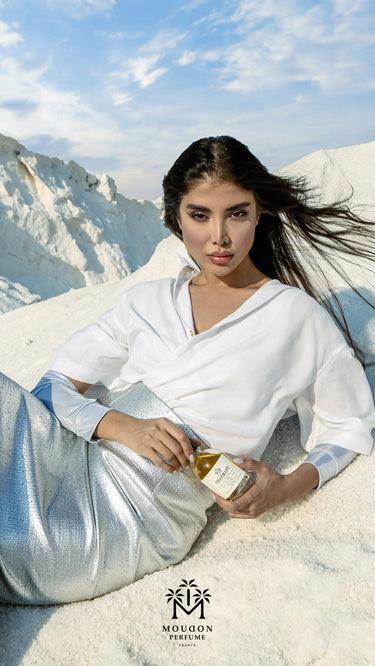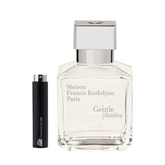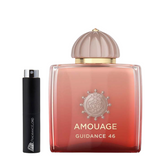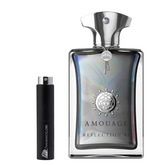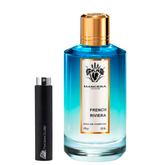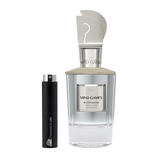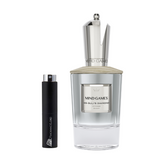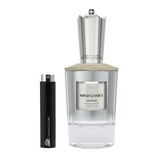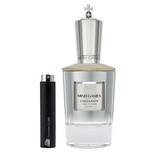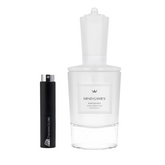When it comes to expensive fragrances, the question arises: What makes a Perfume Expensive? This largely stems from high-end ingredients and ingenuity being utilized, and quality control. This guide explains why certain high-end scents stand out above others and are worth paying more for.
The Strength of Rare and Natural Ingredients
The cost and rarity of the ingredients are one of the greatest factors that render a perfume costly. Some natural extracts, which are more costly than those of a synthetic nature, are commonly used in the most expensive perfumes:
-
Oud
-
Ambergris
-
Jasmine sambac
-
Bulgarian rose
-
Sandalwood
|
Ingredient Type |
Cost Factor |
Example Notes |
|
Natural Oils |
Expensive due to limited supply |
Rose, Oud, Ambergris |
|
Synthetic Molecules |
Affordable and widely available |
Musks, Aldehydes |
|
Hybrid Blends |
Balanced between cost and performance |
Modern niche blends |
Artistry and Craftsmanship
The high-end perfumes are not merely about the smell, but are also about art. The great perfumers, also referred to as noses, take several years to develop their formula. It is a thorough balancing of top and bottom notes to offer the longest and most persistent smell. This is the ability to make a smell grow wonderful throughout the day, not fading away. Essentially, you are paying for the knowledge and precision of the creator and not just the ingredients.
Concentration and Longevity
The other reason why perfumes are costly is the level of concentration. Perfumes are available in both Eau de Toilette and Extrait de Parfum. The larger the proportion of the perfume oils, the more pronounced and permanent the smell!
|
Type |
Oil Concentration |
Longevity |
Price Range |
|
Eau de Toilette |
5–15% |
3–5 hours |
Moderate |
|
Eau de Parfum |
15–20% |
5–8 hours |
Premium |
|
Extrait / Parfum |
20–40% |
8–12 hours+ |
Luxury |
The high concentration of scents in premium brands like Amouage, Creed, or Parfum de Marly, which makes them long-wearing and has a tremendous effect, is one of the reasons why they are sold at higher prices.
Check out Amouage Reflection 45 For Man here!
Packaging, Branding, and Exclusivity
Most premium perfumes are packaged in bottles, which are hand-finished with crystal or glass (and even metal) in the bottle. The packaging is full of luxury and adds value to owning the scent. Moreover, brand heritage releases and limited editions add value and exclusivity to collectors and connoisseurs.
Check out Travel Size Perfume here!
The True Value of Luxury Perfumes
What makes a perfume expensive? The high cost of perfume is not merely the name on the bottle, but the sum of
-
precious materials
-
master craftsmanship
-
strong concentrations
-
Exclusivity
Each drop narrates a tale of brilliance and utmost excellence. In case you are interested in some of the most luxurious scents, you have to visit our best collection at Fragrance Lord!
FAQs About What Makes a Perfume Expensive
1. What makes a perfume expensive?
Expensive perfumes are made with rare and high-quality ingredients, such as natural essential oils, exotic flowers, and musk. They also feature long-lasting formulations, luxurious packaging, and are often produced by prestigious brands with expert perfumers.
2. Are expensive perfumes worth the money?
Yes, expensive perfumes are often worth the investment because they provide better longevity, sillage (the scent trail), and a more refined fragrance experience compared to cheaper alternatives.
3. Why do luxury brands charge so much for perfumes?
Luxury brands charge more due to the exclusivity of their ingredients, brand reputation, expert craftsmanship, and limited-edition releases that make their perfumes rare and desirable.
4. Do expensive perfumes last longer?
Generally, yes. High-end perfumes use a higher concentration of essential oils and better fixatives, allowing the scent to last much longer on the skin and clothes.
5. Is packaging a reason why perfumes are expensive?
Absolutely. Many luxury perfumes come in hand-crafted bottles made of crystal or designer glass, with gold-plated or artistic details that add to the overall cost and appeal.
6. Are natural ingredients more expensive than synthetic ones?
Yes. Natural ingredients like rose oil, oud, or jasmine absolute are costly to extract and process, which increases the overall price of the perfume.
7. Can a cheaper perfume smell like an expensive one?
Some budget-friendly perfumes can mimic luxury scents, but they usually lack the depth, longevity, and complexity found in genuine high-end fragrances.



